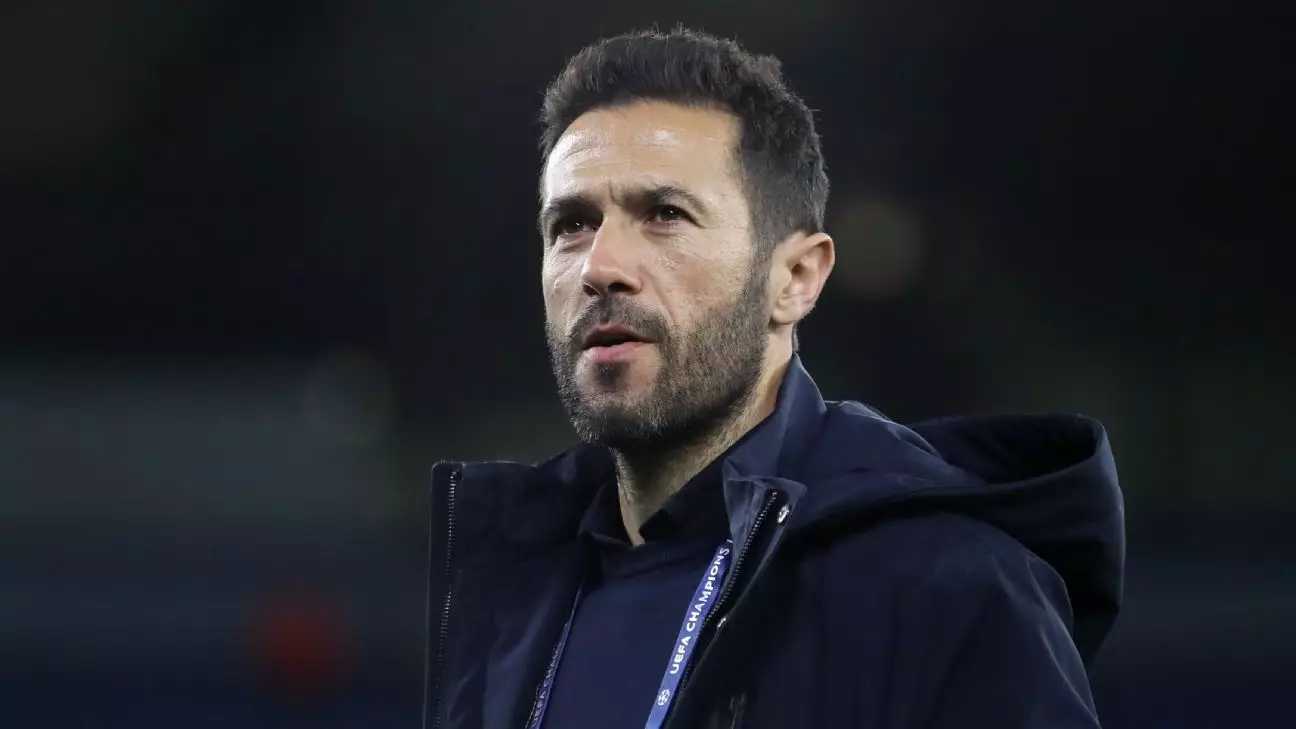Manchester City is stepping into a new chapter with the announcement of Hugo Viana as the club’s new director of football. This strategic appointment comes as City prepares for the end of an era, marked by the impending departure of long-serving director Txiki Begiristain. Viana is set to assume his full-time position in the summer of 2025. This thoughtful approach, which includes a transitional phase where Viana will work alongside Begiristain, indicates a commitment to continuity amidst change. This decision not only underscores the organization’s values but also reflects the importance City places on a seamless handover.
While Viana’s past experiences in football, both as a player and as a director, may have some merits, it would be prudent to approach his appointment with cautious optimism. His tenure at Sporting CP from 2018 was marked by a few commendable achievements, notably the club’s titles in 2021 and 2024. However, these successes came within a highly competitive landscape, which also saw the emergence of significant challenges. Critics may question whether Viana can replicate or build upon his past successes in the high-stakes environment of Manchester City, a club with ambitions not only in domestic competitions but also in European football.
The decision to pursue Viana after reportedly considering other candidates such as Quique Carcel from Girona indicates a meticulous search for the right individual to align with Manchester City’s long-term strategy. Viana’s ability to attract and secure talent during his tenure at Sporting will be essential as City continues to expand its footprint globally. Nevertheless, it remains to be seen how Viana will navigate the expectations that accompany his new role, especially in a footballing landscape that has become increasingly challenging.
One of the most pressing concerns arising from this change is how it may affect Pep Guardiola, who is yet to commit to a contract extension with City. The close working relationship between Guardiola and Begiristain has been instrumental in City’s rise to prominence, leading to questions about whether a change in the footballing structure will impact Guardiola’s decision to remain at the club. The uncertainty surrounding Guardiola’s future could pose significant implications for player recruitment and overall team stability, crucial elements for continued success.
As the club prepares for this transition, it will be essential for both Viana and the management team to address these underlying concerns proactively. The future of Manchester City hinges not only on effective leadership but also on fostering an environment of trust and clarity among players, coaching staff, and fans alike. With significant developments on the horizon, supporters will be watching closely to see how Viana adapts to his new role and whether he can maintain the trajectory of success that has become synonymous with Manchester City in recent years. The upcoming months will set the tone for what lies ahead, ultimately determining if Viana and City can cultivate a lasting legacy together.

